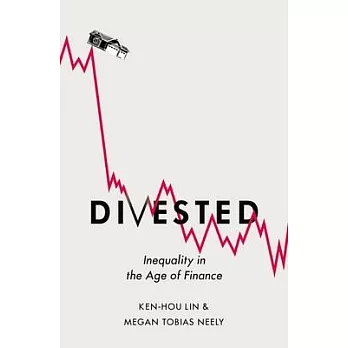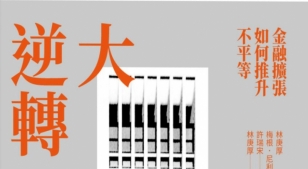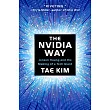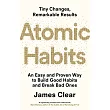Finance is an inescapable part of American life. From how one pursues an education, buys a home, runs a business, or saves for retirement, finance orders the lives of ordinary Americans. And as finance continues to expand, inequality soars.
In Divested, Ken-Hou Lin and Megan Tobias Neely demonstrate why widening inequality cannot be understood without examining the rise of big finance. The growth of the financial sector has dramatically transformed the American economy by redistributing resources from workers and families into the hands of owners, executives, and financial professionals. The average American is now divested from a world driven by the maximization of financial profit. Lin and Neely provide systematic evidence to document how the ascendance of finance on Wall Street, Main Street, and among households is a fundamental cause of economic inequality. They argue that finance has reshaped the economy in three important ways. First, the financial sector extracts resources from the economy at large without providing economic benefits to those outside the financial services industry. Second, firms in other economic sectors have become increasingly involved in lending and investing, which weakens the demand for labor and the bargaining power of workers. And third, the escalating consumption of financial products by households shifts risks and uncertainties once shouldered by unions, corporations, and governments onto families. A clear, comprehensive, and convincing account of the forces driving economic inequality in America, Divested warns us that the most damaging consequence of the expanding financial system is not simply recurrent financial crises but a widening social divide between the have and have-nots.


 天天爆殺
天天爆殺  今日66折
今日66折 


























 博客來
博客來 博客來
博客來 博客來
博客來 博客來
博客來 博客來
博客來